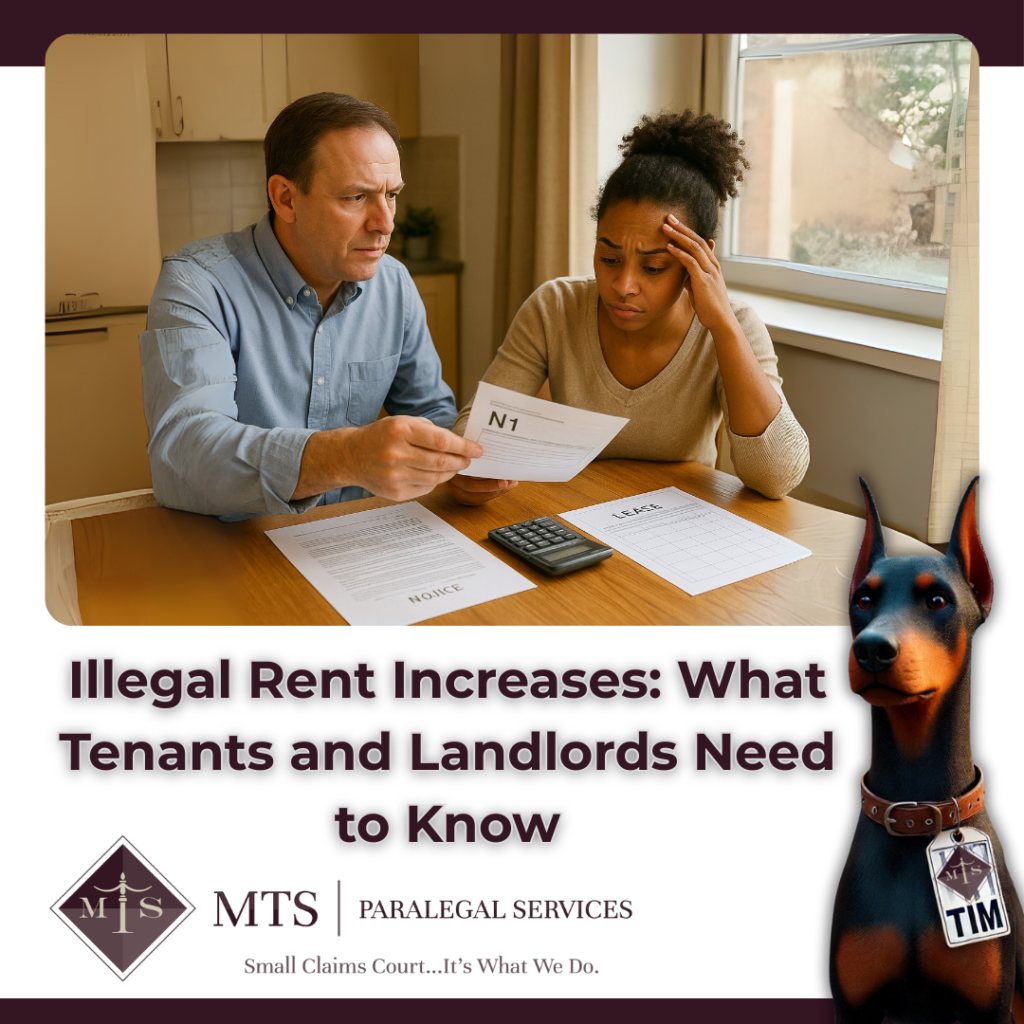
Illegal Rent Increases: What Tenants and Landlords Need to Know
Rental housing in Ontario is regulated by the Residential Tenancies Act, 2006 (RTA). A key protection is rent control, which limits how much (and how often) rent can be increased. When landlords do not follow the rules, tenants may face unlawful rent hikes—and landlords risk repayment orders and other consequences. Tim at MTS Paralegal Services supports both landlords and tenants with applications and hearings before the Landlord and Tenant Board (LTB).
Rent Control in Ontario
Most rental units are subject to the annual rent increase guideline set by the province (the guideline for 2025 is 2.5%). Landlords cannot exceed the guideline unless they obtain an Above-Guideline Increase (AGI) order from the LTB. Some units are not subject to the guideline, including rental units first occupied for residential purposes on or after November 15, 2018, certain community housing units, and long-term care homes. Even for exempt units, landlords must still follow the notice and timing rules. York Region+1
Legal Requirements for Rent Increases
- Form & Notice: Use Form N1 – Notice of Rent Increase and give at least 90 days’ notice.
- Timing: Rent can be increased once every 12 months.
- Amount: For guideline-covered units, you cannot exceed the guideline unless you obtain an AGI from the LTB under the RTA.
If any of these conditions are not met, the increase is unlawful.
Consequences of Illegal Rent Increases
Tenants are not required to pay an unlawful increase. If they have already paid, they can apply to the LTB using Form T1 – Tenant Application for a Rebate of Money the Landlord Owes to recover overpayments. The LTB can order repayment and related remedies under the RTA.
Which Forum Handles the Dispute?
- Landlord and Tenant Board (LTB): Handles unlawful rent increase disputes and related RTA remedies; the LTB has exclusive jurisdiction over these issues.
- Small Claims Court: Generally used only to enforce monetary orders or for disputes outside the RTA’s assigned matters; it is not the venue to decide the legality of a rent increase. (The Small Claims monetary cap is $35,000 now and $50,000 as of Oct 1, 2025.)
The Importance of Legal Guidance
Illegal-increase disputes can escalate quickly. Tenants may feel pressured to pay amounts they don’t owe; landlords can unintentionally misapply the rules. Tim at MTS Paralegal Services helps confirm whether a unit is guideline-exempt, ensures the correct N1 process (or AGI) is followed, and prepares/defends T1 applications where needed.
Tim at MTS Paralegal Services provides representation to tenants challenging unlawful rent hikes and to landlords ensuring compliance with the law. By engaging experienced guidance, parties can protect their rights and avoid costly errors.
For advice on illegal rent increases or other rental disputes, contact Tim at MTS Paralegal Services through call Tim at MTS Paralegal Services at (226) 444-4882
This content does not constitute legal advice. For up-to-date guidance or legal advice specific to your situation, please contact MTS Paralegal Services Professional Corporation or call (226) 444-4882.
